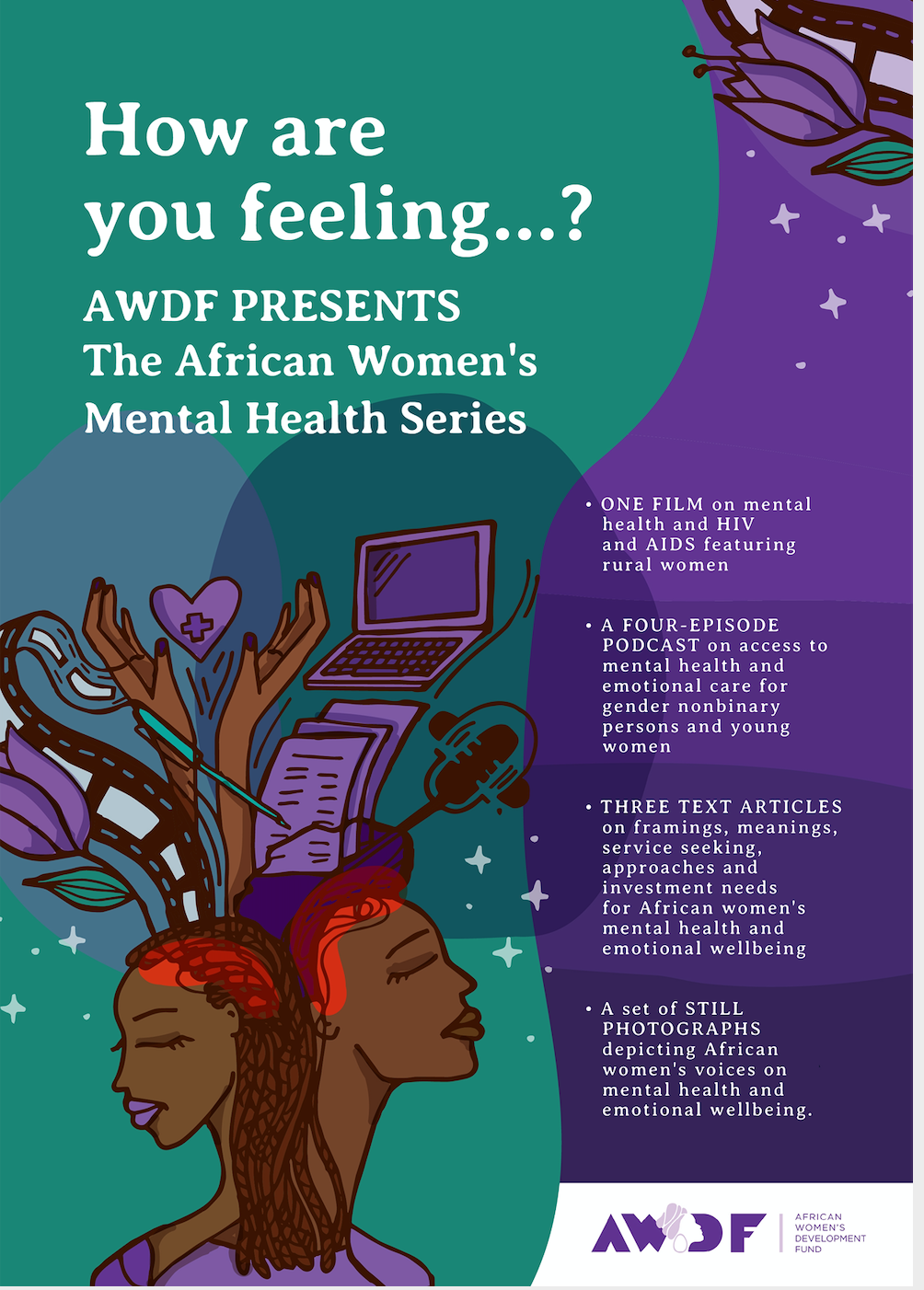Introducing the African Women’s Mental Health Series
How are you feeling…?
Mental health and emotional well-being is one of the significant Non-communicable diseases (NCDs) categories that are a leading cause of death and disability for African women. In a continent-wide study on NCDs and women in 2020, AWDF found that close to 73 million women in Africa were affected by mental health conditions and more than 25 million women by neurological conditions.

The globalised framing of mental health and emotional wellbeing continues to offer a landscape that is largely medicalised with westernised meanings and approaches to prevention, diagnosis and treatment. These are psychologically-driven and void of context specific realities and intersectionality with social, economic, and political aspects.
For most African women and African women’s rights organisations who are championing redress across communities on the continent, this has increasingly resulted in a scope that is exclusionary with a limited flow of resources, including research and funding, to those who lead the work.
Ahead of the 2021 World Mental Health Day, AWDF will be unveiling the African women’s mental health series. In this collection, we present diverse knowledges including
● One film on mental health and HIV and AIDS featuring rural women
● A four-episode podcast on access to mental health and emotional care for gender non-binary persons and young women
● Three text articles on framings, meanings, service seeking, approaches and investment needs for African women’s mental health and emotional wellbeing
● A set of still photographs depicting African women’s voices on mental health and emotional wellbeing.
Through this knowledge series, AWDF calls for a landscape of mental health that centres and actively listens to and includes the voices and aspirations of African women.
Look out for our upcoming webinar on October 13 at 12:00 PM GMT/ 2:00 PM SAST/3:00 PM EAT in which we will be launching the series and unveiling all of the products in the collection.
